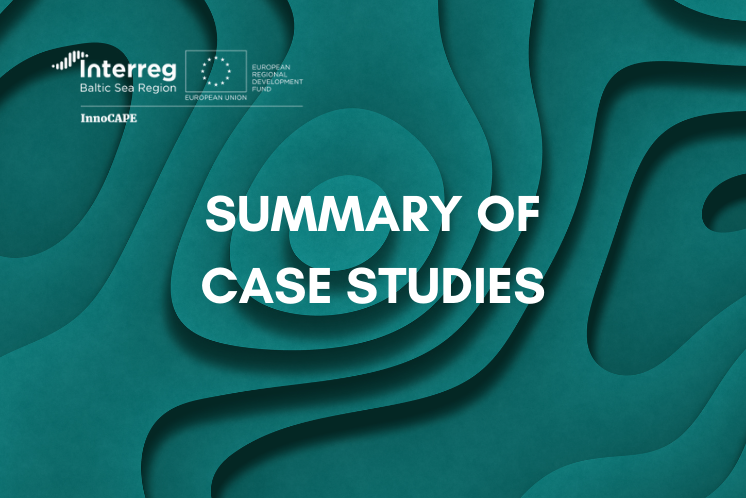
InnoCAPE project https://innocape.eu/about/ addresses the target groups of public authorities, shaping digitalization policies on national level, and digital innovation hubs (DIHs), the key players in implementing those policies. The secondary target group is SMEs in traditional industry sectors (like wood, motor, textile, fishing, etc.), which are targeted on the level of European Commission as lagging behind in digital innovation and require additional support to enable their digital transformation. The project envisages to involve around 1k representatives of SMEs in project activities of building awareness, testing digitalization tools, and implementing pilot projects of digitalization.
The InnoCAPE consortium consists of 3 public authorities from Lithuania, Latvia, and Estonia and 8 digital innovation hubs from Lithuania, Latvia, Estonia, Finland, Sweden, and Norway, accompanied by 6 public authorities as associated partners.
Project activities are laid out with the aims to increase the knowledge, skills and competence of public authorities and DIHs, enable the benchmarking of BSR countries in terms of digital maturity, increase the readiness of SMEs to meet the challenges of Industry 4.0, and develop a cooperation framework for support and showcasing the digital innovation potential of the region. The capacity of public enablers will be strengthened through knowledge exchange and increased competence, macro regional networking, and shared use of human and technical resources.
The aim of the WP 2 of the InnoCAPE project (Increasing competence of DIHs and public authorities) is to increase the knowledge, skills and competence of public authorities and DIHs as enablers of digital innovation and Industry 4.0. The Work Package will help to learn the needs / skills gap of SMEs and DIHs in the BSR, gain more expertise in the area of Industry 4.0, build visibility and trust among SMEs and nurture digital innovation hubs with competencies to pursue their designated mission. Accordingly, public authorities will increase their competence on how to strengthen DIHs through policymaking. Increasing capacity of DIHs as digital innovation enablers will eventually enhance uptake of Industry 4.0 solutions by SMEs, helping to achieve policy goals set by public authorities, strengthen the economic competitiveness of the BSR on macro regional level, and contribute to building the single digital market in Europe. The outcomes of the WP will contribute to the aims and objectives set out in EUSBSR and Europe 2020.
This report summarizes a part of the activities executed in the WP 2: Group of activities 2.1, titled “Learning from case studies”. The report also outlines a summary of good practices, supported by additional cases identified throughout the project.
